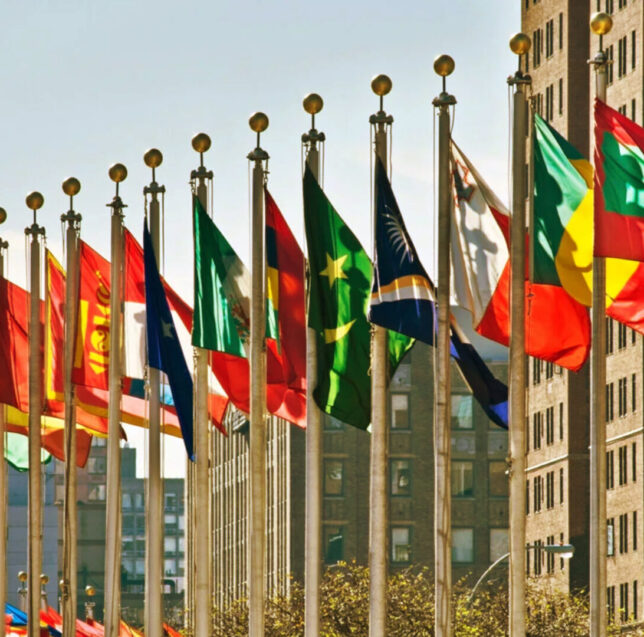Diplomacy
As emerging technologies like artificial intelligence, 5G networks and biotechnology reshape the global landscape, diplomatic efforts play a pivotal role in managing tensions, fostering collaboration and establishing norms. Diplomacy involves the art of negotiation, communication and cooperation between nations to address shared challenges and opportunities.
China’s Belt and Road Initiative serves as a prime example of its diplomatic strategy, forging economic ties and enhancing its geopolitical footprint. In contrast, the U.S. emphasizes diplomatic partnerships through mechanisms like the Quadrilateral Security Dialogue (Quad) with Japan, India and Australia to bolster security and stability in the Indo-Pacific region.
As emerging technologies drive innovation and societal transformation, diplomatic engagements hold the key to fostering international cooperation, safeguarding human rights and addressing shared concerns.

As emerging technologies like artificial intelligence, 5G networks and biotechnology reshape the global landscape, diplomatic efforts play a pivotal role in managing tensions, fostering collaboration and establishing norms. Diplomacy involves the art of negotiation, communication and cooperation between nations to address shared challenges and opportunities. China's Belt and Road Initiative serves as a prime example of its diplomatic strategy, forging economic ties and enhancing its geopolitical footprint. In contrast, the U.S. emphasizes diplomatic partnerships through mechanisms like the Quadrilateral Security Dialogue (Quad) with Japan, India and Australia to bolster security and stability in the Indo-Pacific region. As emerging technologies drive innovation and societal transformation, diplomatic engagements hold the key to fostering international cooperation, safeguarding human rights and addressing shared concerns.
I am honored to join the Global Tech Security Commission and contribute to the promotion of technology's role in advancing freedom and prosperity in the face of authoritarian challenges by untrustworthy actors. The Global Tech Security Commission is building the thought leadership and relationships necessary to bring together the best in technology with the best in governance to empower international governments and companies to resist totalitarian regimes.

The Era Of ‘Tech Diplomacy’ Is Here
Technology is the new frontier of international relations. The interaction is bi-directional: technology is defining diplomatic matters while diplomacy is also influencing the development and deployment of technology. Take semiconductors as an example. This is a technology that forms the foundation of digital economy, national security, and productivity in almost all industries. Global supply chain in the semiconductor industry is shaping U.S. foreign policy. Conversely, America’s diplomatic effort has been redefining the supply chain. Tech diplomacy is different from science diplomacy, which became a key pillar for the U.S. and other countries since World War II. Scientists participated in treaty negotiations, engaged in bilateral summits and served as attachés at embassies. Primary topics included nuclear proliferation, super-collider construction, human space exploration and environmental science.

